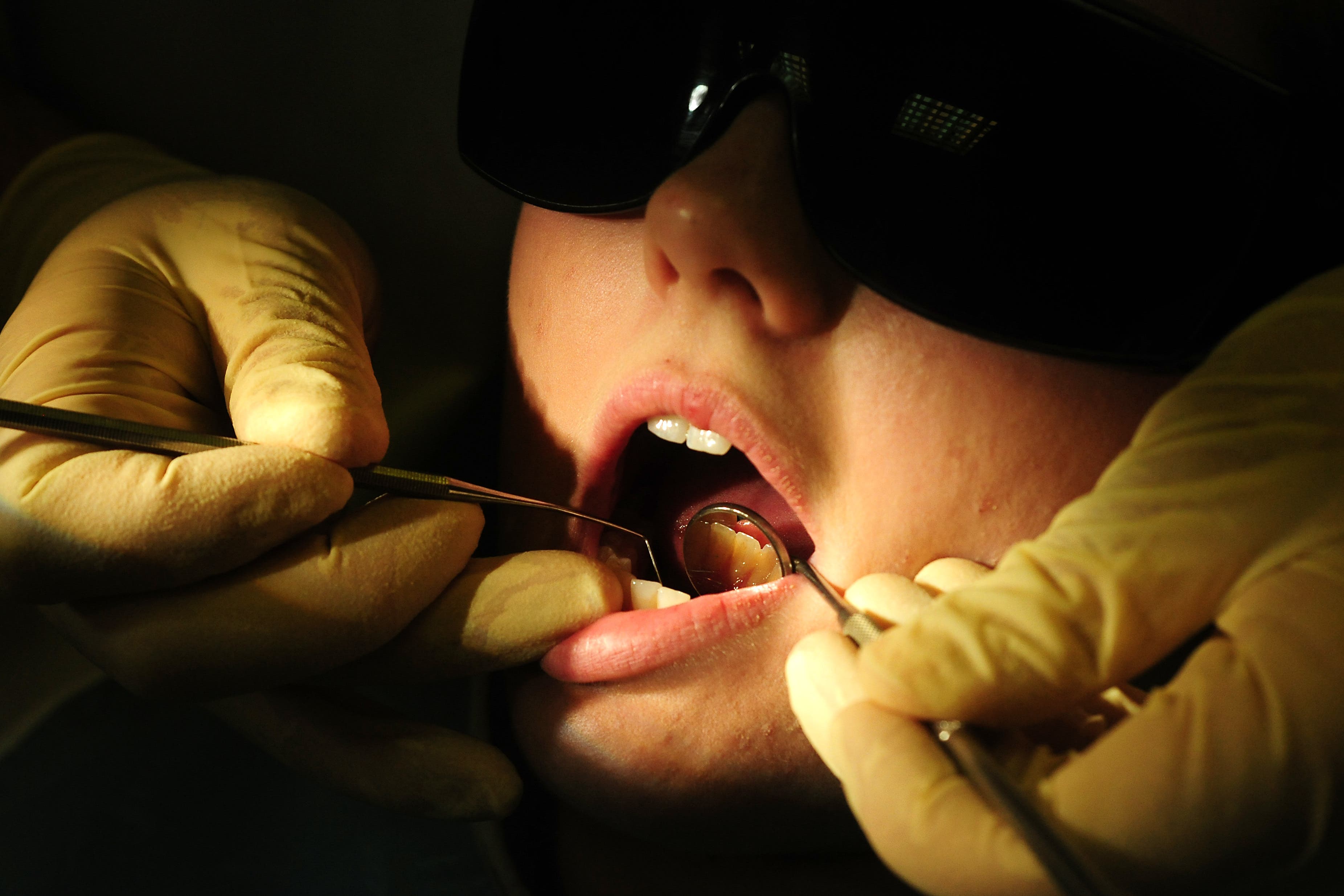Toothbrushes for children have become ‘luxury’ item for some families
The state of children’s teeth is a ‘national disgrace’, one expert has warned.

Toothbrushes are becoming a “luxury item” for some families, a leading doctor has warned as she described the state of children’s dental health as a “national disgrace”.
Dr Camilla Kingdon, president of the Royal College of Paediatrics and Child Health, said the cost of living crisis was exacerbating the problem of children with rotten teeth.
Tooth decay is the leading reason for hospital admissions in England among five to nine year olds.
In an interview with The BMJ, she said: “The state of children’s teeth… is actually a national disgrace.
“The commonest reason for a child having a general anaesthetic in this country is dental clearance.
“That’s a terrible admission of failure.”
She added: “It reflects diet and it reflects a family’s ability to buy a toothbrush and toothpaste, because when you’re struggling to feed your family, that becomes a luxury item.
“It is simple but very visible, alarming evidence of how [the cost of living crisis] is impacting children’s health.”
Dr Kingdon, who has been a paediatrician in the NHS for almost 30 years, said that the use of food banks is now “unbelievably common” among the families she sees.
People cannot afford to take the time off work - I don’t ever remember a time when we often had many consecutive days when parents couldn’t visit their unwell baby in my neonatal unit
On financial pressures facing families, she added: “People cannot afford to take the time off work – I don’t ever remember a time when we often had many consecutive days when parents couldn’t visit their unwell baby in my neonatal unit.”
In the wide-ranging interview, Dr Kingdon also highlighted the UK’s poor track record on asthma among children.
“The UK has some of the worst asthma outcomes and some of the highest rates of death due to asthma in children in all of Europe,” she told the journal.
“Of course, it’s complex, but… we’ve got some of the worst housing stock in Europe.
“If you’ve got a child who’s got a propensity to asthma, and you’re living in damp accommodation where the heating doesn’t work, where you’ve got mould on the walls, where the route you have to walk your children to school is extremely polluted, then we know that all these factors interplay to make that child’s asthma much more problematical.”
She cited some initiatives the Government could introduce to help struggling families, such as expanding the provision of free school meals and increasing the value of healthy start vouchers to keep up with inflation.
She also called on ministers to publish a white paper on tackling health inequalities.
Dr Kingdon added: “I’m not pretending this is easy.
“Health inequalities are deeply entrenched, and it is going to take many, many different ways to tackle them. But we need to start somewhere, and there needs to be an intention.”
Bookmark popover
Removed from bookmarks